
Gigiri: Nairobi's Diplomatic and Green Oasis
Gigiri, located in the northern part of Nairobi, is a serene and upscale neighbourhood renowned for its lush greenery, diplomatic presence, and cultural attractions. As the host of the United Nations Office at Nairobi, Gigiri is a hub of international activity, making it a vibrant and diverse area to explore. One of Gigiri's main attractions is the Karura Forest, a sprawling urban forest reserve perfect for nature lovers and outdoor enthusiasts. Visitors can enjoy peaceful walks, cycling trails, and the chance to see local wildlife. The forest is also home to several picnic spots and waterfalls, offering a refreshing escape from the city's hustle and bustle. Gigiri boasts a range of dining options, from high-end restaurants to cozy cafes. The Village Market, a popular shopping and entertainment complex, provides a mix of local and international cuisines, shopping boutiques, and a variety of leisure activities, including a bowling alley and a cinema. It's a must-visit spot for those looking to experience the local lifestyle and indulge in some retail therapy. Cultural experiences in Gigiri are also plentiful. The Kazuri Beads Women's Cooperative offers a unique look into the craftsmanship of local artisans, where visitors can purchase beautifully handcrafted beads and pottery. Additionally, the nearby Nairobi National Museum provides insights into Kenya's rich history and cultural heritage.
Local tips in Gigiri
- Visit Karura Forest early in the morning to enjoy cooler temperatures and have a better chance of spotting wildlife.
- Carry cash when visiting local markets and smaller shops, as some may not accept credit cards.
- Dress comfortably and wear walking shoes when exploring the Village Market and Karura Forest.
- Plan your visit to Kazuri Beads around their guided tours for a more informative experience.
Gigiri: Nairobi's Diplomatic and Green Oasis
Gigiri, located in the northern part of Nairobi, is a serene and upscale neighbourhood renowned for its lush greenery, diplomatic presence, and cultural attractions. As the host of the United Nations Office at Nairobi, Gigiri is a hub of international activity, making it a vibrant and diverse area to explore. One of Gigiri's main attractions is the Karura Forest, a sprawling urban forest reserve perfect for nature lovers and outdoor enthusiasts. Visitors can enjoy peaceful walks, cycling trails, and the chance to see local wildlife. The forest is also home to several picnic spots and waterfalls, offering a refreshing escape from the city's hustle and bustle. Gigiri boasts a range of dining options, from high-end restaurants to cozy cafes. The Village Market, a popular shopping and entertainment complex, provides a mix of local and international cuisines, shopping boutiques, and a variety of leisure activities, including a bowling alley and a cinema. It's a must-visit spot for those looking to experience the local lifestyle and indulge in some retail therapy. Cultural experiences in Gigiri are also plentiful. The Kazuri Beads Women's Cooperative offers a unique look into the craftsmanship of local artisans, where visitors can purchase beautifully handcrafted beads and pottery. Additionally, the nearby Nairobi National Museum provides insights into Kenya's rich history and cultural heritage.
Iconic landmarks you can’t miss
Village Market
Explore the Village Market in Nairobi, a vibrant shopping mall featuring art galleries, diverse cuisine, and lively entertainment for a unique cultural experience.
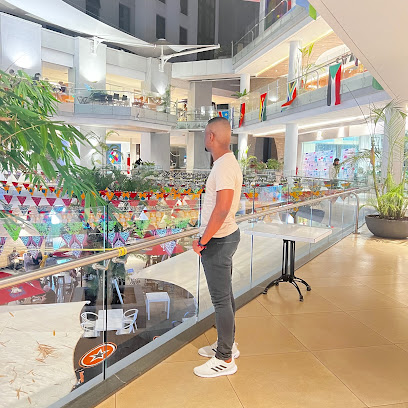
UNITED NATIONS EDUCATIONAL, SCIENTIFIC & CULTURAL
Discover the United Nations Educational, Scientific & Cultural Organization in Nairobi, a hub of global peace, education, and cultural preservation.
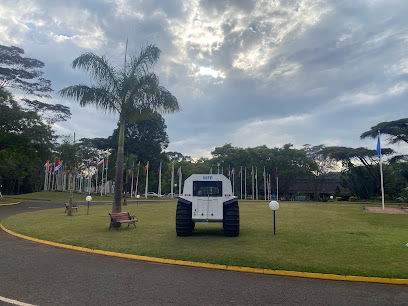
Gigiri Box Park
Explore the vibrant Gigiri Box Park in Nairobi, a shopping mall offering a unique blend of shopping, dining, and community experiences.
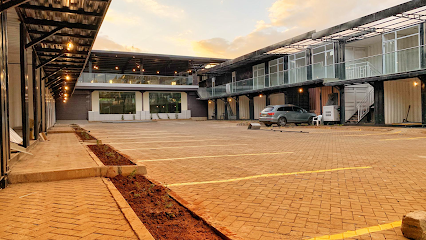
Under The Sea
Discover Under The Sea in Nairobi, an indoor playground bursting with adventure and creativity for children and families alike.
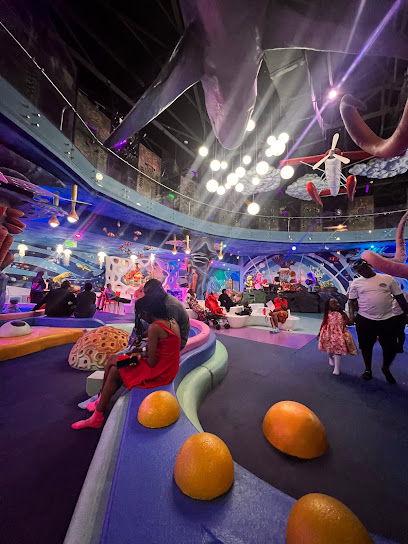
The Gigiri Court Yard
Discover the tranquility of The Gigiri Court Yard, Nairobi's serene park ideal for relaxation, picnics, and nature exploration amidst lush landscapes.
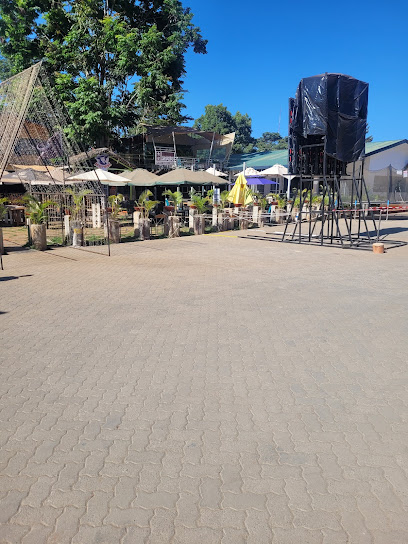
The Galton - Fenzi Memorial
Explore The Galton - Fenzi Memorial in Nairobi, a captivating monument that celebrates Kenya's rich history and cultural heritage amidst a vibrant urban backdrop.
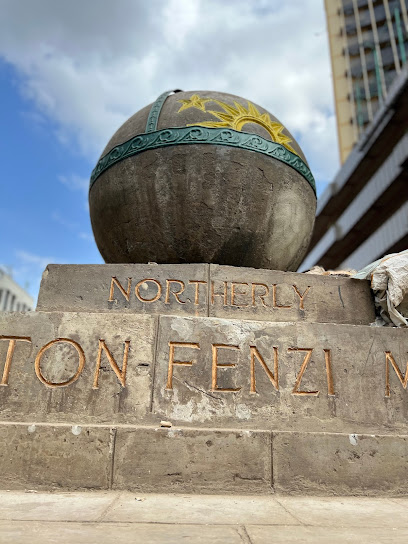
Unmissable attractions to see
Karen Blixen Museum
Explore the Karen Blixen Museum, a captivating tribute to the life of the 'Out of Africa' author amidst beautiful gardens in Nairobi.
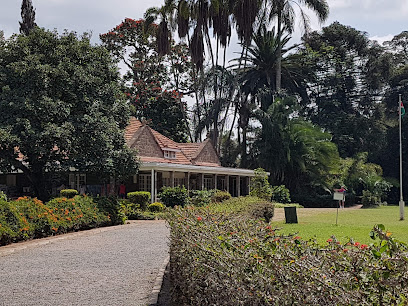
Kenya Railway Museum
Discover the fascinating history of Kenya's railways at the Kenya Railway Museum, home to vintage trains and captivating exhibits in Nairobi.
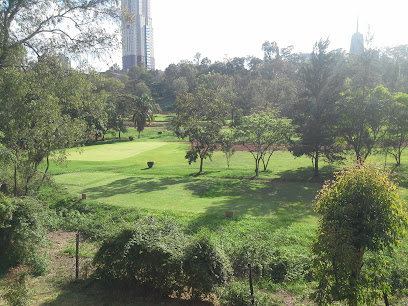
One Off Contemporary Art Gallery Ltd.
Explore the fusion of contemporary art and culture at One Off Contemporary Art Gallery in Nairobi – a haven for art lovers and curious minds alike.
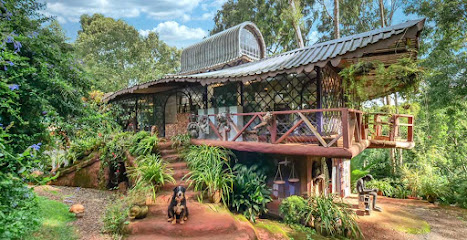
Karura Forest (Gate D)
Discover the tranquility of Karura Forest, Nairobi's urban oasis filled with lush greenery, wildlife, and scenic walking trails.
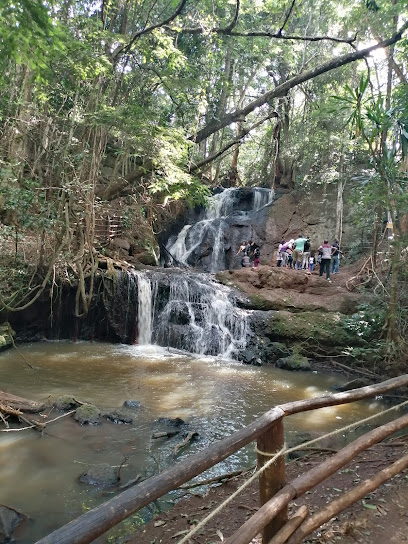
Karura Foot Path
Experience the serene beauty of Karura Foot Path, Nairobi's urban sanctuary, where nature and tranquility await your exploration.
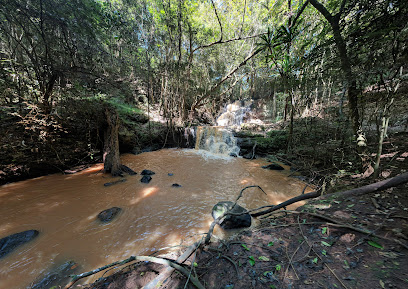
United Nations Visitors Service
Discover the United Nations Visitors Service in Nairobi, a gateway to understanding global diplomacy and international cooperation in action.
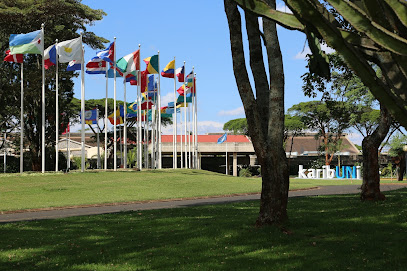
Village Gardens
Discover the serene beauty of Village Gardens in Nairobi, a tranquil escape filled with vibrant flora and peaceful pathways for all visitors.

Essential places to dine
RocoMamas Kenya Village Market
Indulge in gourmet burgers and delicious barbecue at RocoMamas Kenya Village Market - where every bite is an adventure!
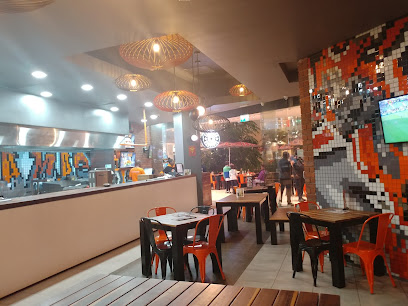
Hero Restaurant
Experience culinary excellence at Hero Restaurant in Nairobi's Village Market – where local flavors meet international cuisine.
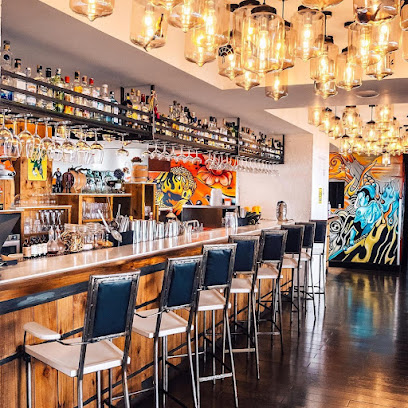
Harvest Restaurant
Experience exquisite dining at Harvest Restaurant in Nairobi - where local flavors meet global cuisine in an inviting atmosphere.
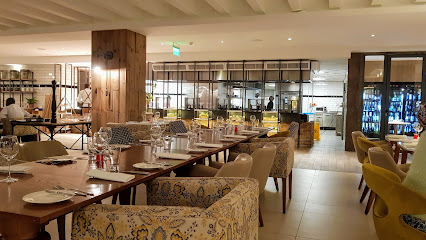
The Local Grill
Indulge in exquisite steaks at The Local Grill - Nairobi's premier steakhouse offering a unique culinary journey in the heart of Village Market.
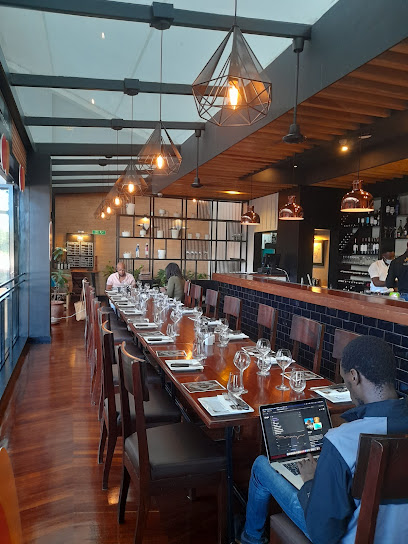
La Casa Di Nico Ristorante
Experience authentic Italian flavors at La Casa Di Nico Ristorante, Nairobi's culinary haven for pizza lovers and pasta enthusiasts.
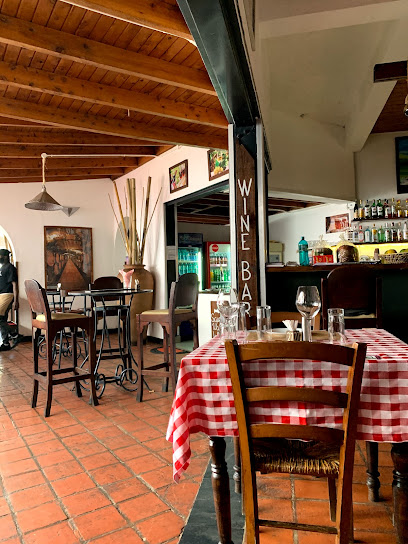
Asian Gardens
Discover the essence of Pan-Asian cuisine at Asian Gardens in Nairobi's Warwick Centre—where flavors unite for an unforgettable dining experience.
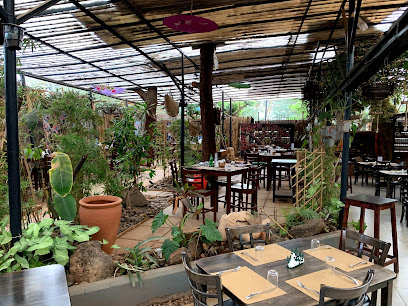
Cedars Gigiri
Discover the rich flavors of Kenya at Cedars Gigiri, where every dish tells a story and every visit feels like home.
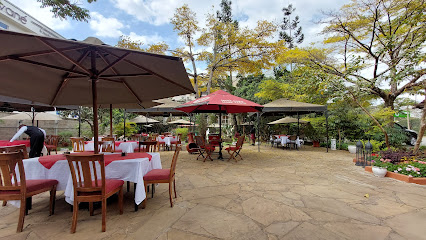
The Daily Cafe & Bistro - Gigiri
Discover culinary delights at The Daily Cafe & Bistro in Gigiri, where local flavors meet international cuisine in a cozy setting.

East Seoul Street food
Experience authentic Asian street food flavors at East Seoul Street Food in Nairobi - a culinary journey not to be missed!
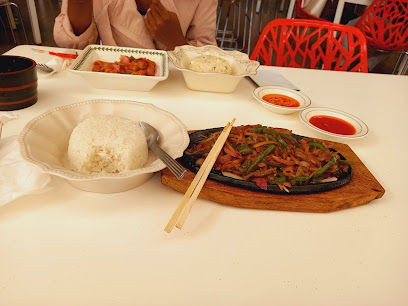
Il Giocoliere
Discover authentic Italian cuisine at Il Giocoliere in Nairobi, where every dish tells a story of tradition and flavor.
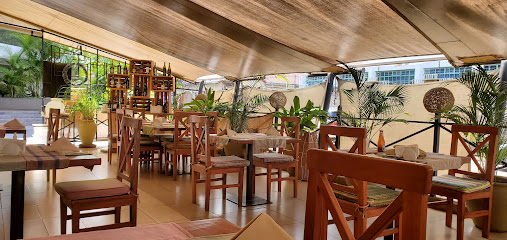
Markets, malls and hidden boutiques
Village Market
Explore the eclectic blend of shopping, dining, and culture at Village Market, Nairobi's premier shopping destination.
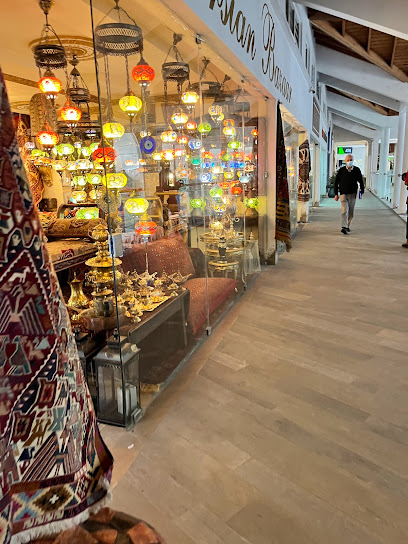
Gigiri Shopping Centre
Explore the vibrant Gigiri Shopping Centre in Starehe, a perfect blend of shopping, dining, and local culture for every tourist.
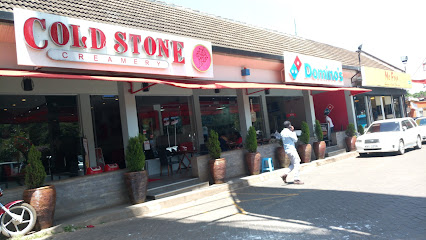
CRAFT CENTRE
Explore the Craft Centre in Nairobi for unique handmade souvenirs and an authentic taste of Kenyan artistry.
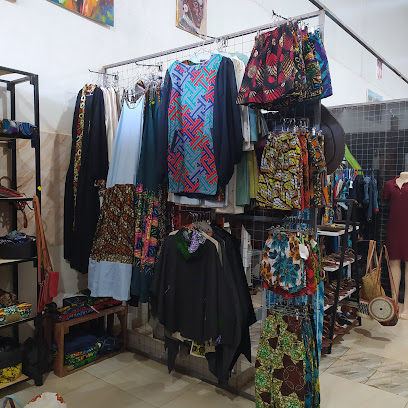
Rossetti Kitchenware
Explore Rossetti Kitchenware in Nairobi for premium kitchen supplies, where quality meets culinary creativity in a vibrant shopping atmosphere.
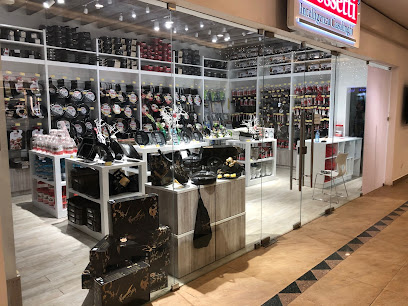
Miniso Village Market
Explore stylish home goods at Miniso Village Market in Nairobi, where quality meets affordability in a vibrant shopping atmosphere.
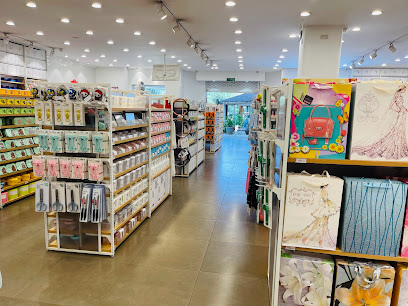
UN Gift Shop (Commissary)
Discover unique gifts at the UN Gift Shop in Nairobi, where global cultures meet local craftsmanship, and every purchase supports artisans.
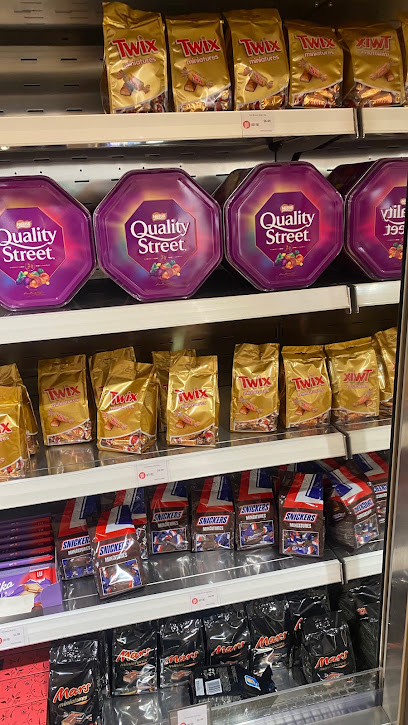
Mille Collines - Village Market
Explore Mille Collines - Village Market in Nairobi for unique women's fashion inspired by Kenyan culture and craftsmanship.
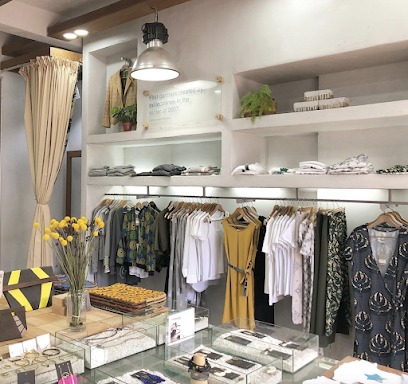
African Lifestyle Hub
Explore the African Lifestyle Hub in Nairobi for a unique shopping experience filled with local crafts, culture, and vibrant artisan creations.
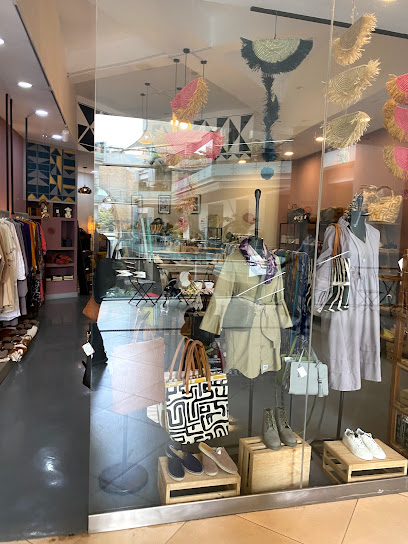
Tope shop
Explore Tope Shop in Kitisuru, Nairobi for unique Kenyan home goods and artisanal crafts that beautifully blend tradition and modernity.
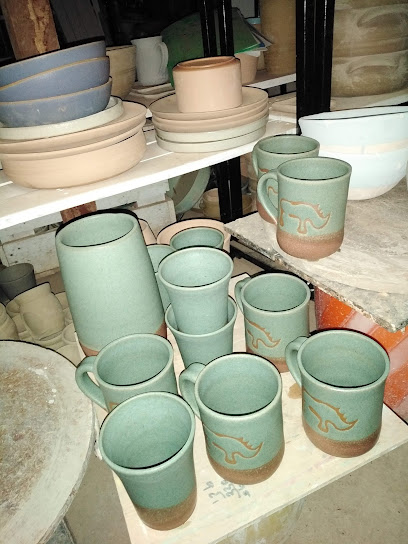
Crafts And More Studio
Discover a treasure trove of Kenyan craftsmanship at Crafts And More Studio in Gigiri, Nairobi, where creativity meets culture.

Essential bars & hidden hideouts
Bila Shaka
Discover the vibrant nightlife of Nairobi at Bila Shaka, where great drinks and a lively atmosphere await you.
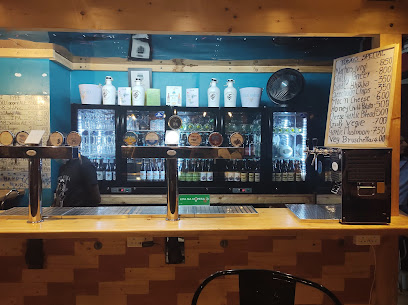
Karel T-Lounge
Experience the vibrant ambiance and exquisite flavors at Karel T-Lounge, Nairobi's premier restaurant and cocktail bar.
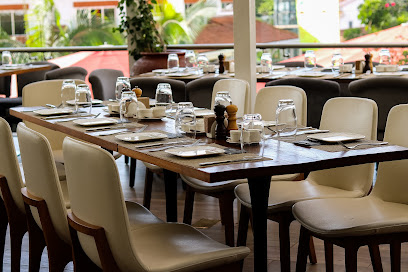
The Golden Stool Kitchen and Bar
Discover a culinary gem in Nairobi with The Golden Stool Kitchen and Bar, where the vibrant tastes of West Africa come alive in a warm and inviting atmosphere.
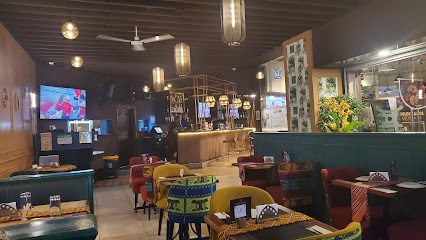
The GIGIRI LOUNGE
Discover the culinary delights of The Gigiri Lounge, a vibrant restaurant in Nairobi offering a fusion of local and international flavors.
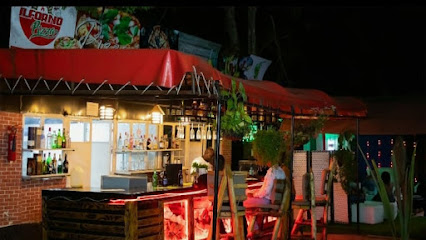
The Daily Cafe & Bistro - Gigiri
Experience a delightful blend of local and international cuisine at The Daily Cafe & Bistro, nestled in Nairobi's vibrant Gigiri neighborhood.
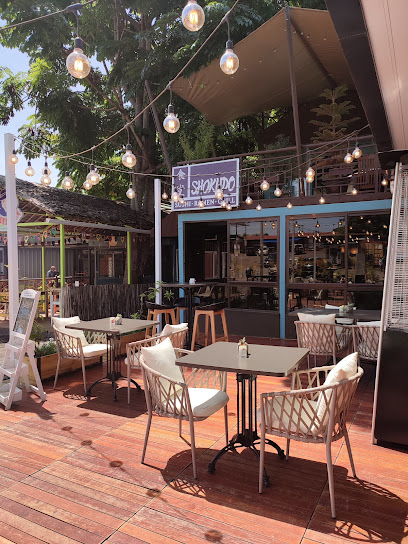
Wine Life
Experience the finest wines and exquisite pairings at Wine Life in Nairobi, where every sip is a journey through taste and culture.
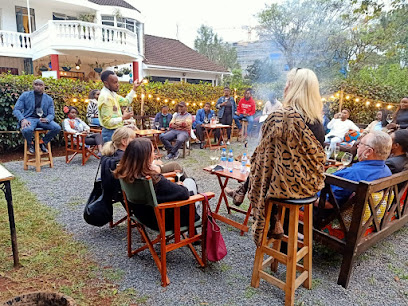
Terra
Experience the vibrant nightlife of Nairobi at Terra, where exquisite drinks meet a lively atmosphere for an unforgettable evening.
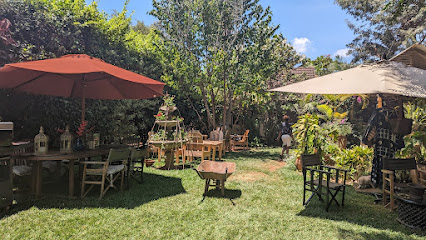
Saigon Tapas & Bar
Discover the vibrant flavors and exciting atmosphere at Saigon Tapas & Bar, Nairobi's premier sports bar and tapas destination.
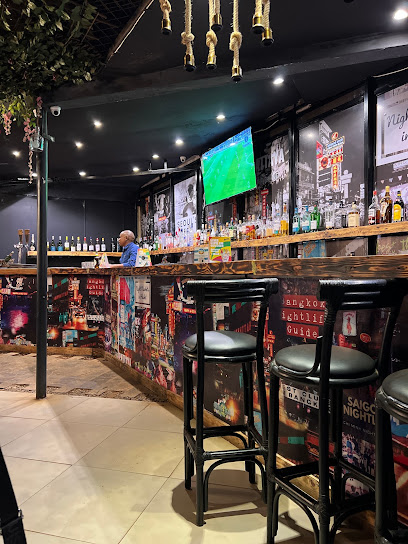
Bamboo bar
Discover the lively atmosphere of Bamboo Bar, a tropical haven in Nairobi offering refreshing drinks and vibrant nightlife for tourists and locals alike.
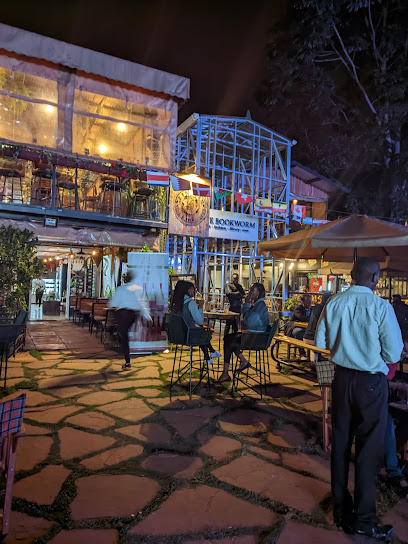
Gin Joint
Discover the vibrant nightlife of Nairobi at Gin Joint, a premier bar offering exquisite cocktails and a lively atmosphere in the heart of Village Market.
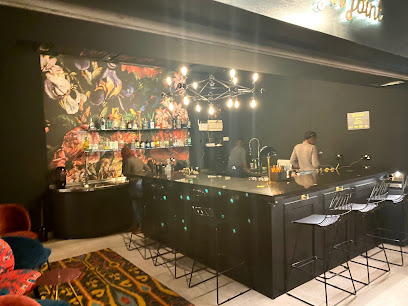
Local Phrases
-
- HelloSawubona
[sah-woo-BOH-nah] - GoodbyeHamba kahle
[HAHM-bah kah-HLEH] - YesYebo
[YEH-boh] - NoCha
[chah] - Please/You're welcomeNgiyacela
[in-gi-YAH-sheh-lah] - Thank youNgiyabonga
[in-gi-yah-BOHN-gah] - Excuse me/SorryUxolo
[oo-SOH-loh] - How are you?Unjani?
[oon-JAH-nee] - Fine. And you?Njalo. Wena?
[njah-loh. WEH-nah] - Do you speak English?Ukhuluma isiNgisi?
[oo-khoo-LOO-mah ee-see-NGEE-see] - I don't understandAngazi
[ahn-GAH-zee]
- HelloSawubona
-
- I'd like to see the menu, pleaseNgingathanda ukubona imenyu, ngiyacela
[in-ging-ah-THAHN-dah oo-koo-BOH-nah ee-MEH-nyoo, in-gi-YAH-sheh-lah] - I don't eat meatAngikwazi ukudla inyama
[ahn-gee-KWAH-zee oo-KOO-dlah ee-NYAH-mah] - Cheers!Oogyg
[OO-gyug] - I would like to pay, pleaseNgithanda ukulipha, ngiyacela
[in-gee-THAHN-dah oo-koo-LEE-pah, in-gi-YAH-sheh-lah]
- I'd like to see the menu, pleaseNgingathanda ukubona imenyu, ngiyacela
-
- Help!Usizo!
[oo-SEE-zoh!] - Go away!Hamba!
[HAHM-bah!] - Call the Police!Biza amaphoyisa!
[BEE-zah ah-mah-PHOY-sah!] - Call a doctor!Biza umlisa!
[BEE-zah oom-LEE-sah!] - I'm lostNgikwatile
[in-gee-kwah-TEE-leh] - I'm illNgisemhlabeni
[in-gee-semm-LAH-beh-nee]
- Help!Usizo!
-
- I'd like to buy...Ngingathanda ukuthenga...
[in-ging-ah-THAHN-dah oo-koo-THEH-ngah...] - I'm just lookingNgiyabuka kuphela
[in-gi-YAH-boo-kah koo-PHEH-lah] - How much is it?Kuyacelani?
[koo-yah-seh-LAH-nee] - That's too expensiveLokhu kudinga isilinganiso esiningi
[LOH-koo koo-DING-gah ee-see-lee-NGAH-nee-soh eh-see-NEEN-gee] - Can you lower the price?Ungangeni amaphepha?
[oon-gahng-GAY-nee ah-mah-PHEH-pah?]
- I'd like to buy...Ngingathanda ukuthenga...
-
- What time is it?Kuyaphi manje?
[koo-YAH-pee MAHN-jeh?] - It's one o'clockKuyashintsha ekuseni
[koo-yah-SHEENT-shah eh-koo-SEH-nee] - Half past (10)Ngo-nye nesithupha
[n-GOH-nyeh nes-ee-THOO-pah] - MorningEkuseni
[eh-koo-SEH-nee] - AfternoonNtambama
[n-TAHM-bah-mah] - EveningEbusuku
[eh-boo-SOO-koo] - YesterdayIzolo
[ee-ZOH-loh] - TodayNamhlanje
[nahm-LAHN-jeh] - TomorrowKusasa
[koo-SAH-sah] - 1Kunye
[koo-NYEH] - 2Kubili
[koo-BEE-lee] - 3Kuthathu
[koo-TAH-too] - 4Kune
[koo-NEH] - 5Kuhlanu
[koo-HLAH-noo] - 6Isithupha
[ee-see-THOO-pah] - 7Isikhombisa
[ee-see-khohm-BEE-sah] - 8Isishiyagalombili
[ee-see-shee-yah-gah-LOHM-bee-lee] - 9Isishiyagalolunye
[ee-see-shee-yah-gah-LOH-loo-nyeh] - 10Isishiyagalombili
[ee-see-shee-yah-gah-LOHM-bee-lee]
- What time is it?Kuyaphi manje?
-
- Where's a/the...?Lapho kuyaphi...?
[lah-POH koo-YAH-pee...?] - What's the address?Iyiphi indawo?
[ee-YEE-pee een-DAH-woh?] - Can you show me (on the map)?Ungangibonisa (emaphaketheni)?
[oon-gahng-ee-boh-NEE-sah (eh-mah-pah-keh-TEH-nee)?] - When's the next (bus)?Kuyaphi okwesokunxele?
[koo-YAH-pee oh-kweh-soh-koon-keh-leh?] - A ticket (to ....)Itikithi (ku ....)
[ee-tee-KEE-tee (koo ....)]
- Where's a/the...?Lapho kuyaphi...?
History of Gigiri
-
Gigiri's history is deeply intertwined with the colonial expansion of Nairobi in the late 19th and early 20th centuries. Originally a forested area, Gigiri began to develop in the 1950s as the British colonial government established residential zones for expatriates. The proximity to the city center and the Nairobi National Park made it an attractive area for affluent settlers.
-
The establishment of the United Nations Office at Nairobi (UNON) in 1996 significantly transformed Gigiri into a diplomatic hub. This development not only brought international attention to the area but also spurred the construction of embassies, NGOs, and international organizations, solidifying its status as a global center for diplomacy and development.
-
Gigiri is known for its diverse cultural landscape, reflecting Nairobi's cosmopolitanism. The presence of expatriates and diplomats has fostered a multicultural environment, with various cultural festivals, cuisines, and social events that celebrate the rich tapestry of communities that call Gigiri home.
-
The proximity to Nairobi National Park has influenced Gigiri's development, leading to a strong emphasis on environmental conservation. Local initiatives and community groups have emerged to address issues related to sustainability and wildlife protection, showcasing the area’s commitment to maintaining its natural heritage amidst urbanization.
-
In recent years, Gigiri has experienced a real estate boom, with luxury apartments, gated communities, and commercial developments springing up to accommodate the growing population. This development reflects the area's increasing importance as a desirable location for both local and international residents, driven by its status as a diplomatic and cultural hub.
Gigiri Essentials
-
Gigiri is conveniently located in Nairobi and can be accessed from various neighborhoods. From the city center, you can take a taxi or an Uber, which typically takes around 30 minutes, depending on traffic. Public buses are also available, with several routes passing through the area. If you're coming from the Jomo Kenyatta International Airport, a taxi or shuttle service will take approximately 30-40 minutes.
-
Gigiri is best explored by taxi or rideshare services like Uber and Bolt, which are widely used and safe. While public buses operate in the area, they may not be the most convenient option for tourists. Bicycles can be rented from local shops, and walking is also a pleasant way to navigate the neighborhood, especially around key attractions such as the United Nations headquarters and local parks.
-
Gigiri is generally a safe neighborhood, but like any urban area, it is advisable to remain vigilant. Avoiding walking alone at night is recommended, particularly in less populated areas. Areas to be cautious around include parts of Eastleigh and some outskirts of downtown Nairobi, which have reported higher crime rates targeting tourists. Always keep an eye on your belongings and avoid flashing valuables.
-
In case of emergency, dial 999 for police assistance or 112 for general emergencies. There are several hospitals and clinics in Nairobi, with the nearest being the Nairobi Hospital and Aga Khan University Hospital. It is advisable to have travel insurance that covers medical emergencies. For minor health issues, pharmacies are available for over-the-counter medications.
-
Fashion: Do dress modestly, especially in places of worship. Avoid wearing overly revealing clothing. Religion: Do respect local customs, including greetings and ceremonies. Public Transport: Do be courteous and give up your seat to elderly passengers. Don't eat or drink on public transport. Greetings: Do greet with a handshake, and a slight bow of the head is respectful. Eating & Drinking: Do try local food, and don't refuse hospitality as it is considered impolite.
-
To experience Gigiri like a local, visit the nearby Karura Forest for walking and cycling trails. Engage with locals at the Village Market, a popular shopping and socializing spot. Don't miss the opportunity to explore the local art galleries and cultural centers. If you're looking for a unique culinary experience, try local eateries serving traditional Kenyan dishes, and be sure to sample Nyama Choma (grilled meat) at a local barbecue spot.
Nearby Cities to Gigiri
-
Things To Do in Naivasha
-
Things To Do in Nakuru
-
Things To Do in Arusha
-
Things To Do in Moshi
-
Things To Do in Eldoret
-
Things To Do in Kisumu
-
Things To Do in Kitale
-
Things To Do in Mbale
-
Things To Do in Malindi
-
Things To Do in Jinja
-
Things To Do in Mombasa
-
Things To Do in Mwanza
-
Things To Do in Diani Beach
-
Things To Do in Singida
-
Things To Do in Lamu







